
National Preparedness Month (NPM), recognized each September, provides an opportunity to remind us that we all must prepare ourselves and our communities now and throughout the year.
This NPM will focus on planning, with an overarching theme: Disasters Happen. Prepare Now. Learn How.
The devastating hurricanes and wildfires of 2017 reminded the nation of the importance of preparing for disasters.
(Learn More. Courtesy of FEMA and YouTube. Posted on Feb 27, 2018.)
Often, we will be the first ones in our communities to take action after a disaster strikes and before first responders arrive, so it is important to prepare in advance to help yourself and your community.
- Take time to learn lifesaving skills − such as CPR and first aid.
- Check your insurance policies and coverage for the hazards you may face, such as flood, earthquakes, and tornados.
- Make sure to consider the costs associated with disasters and save for an emergency.
- Also, know how to take practical safety steps like shutting off water and gas.
2018 Weekly Themes
- Week 1: Sept 1-8 Make and Practice Your Plan
- Week 2: Sept 9-15* Learn Life Saving Skills
- Week 3: Sept 16-22 Check Your Coverage
- Week 4: Sept 23-29 Save For an Emergency
- September 15 is a National Day of Action
“Last year’s natural disasters resulted in significant human and economic loss across America,” explains Senator Ron Johnson, Chairman, Committee on Homeland Security and Governmental Affairs.
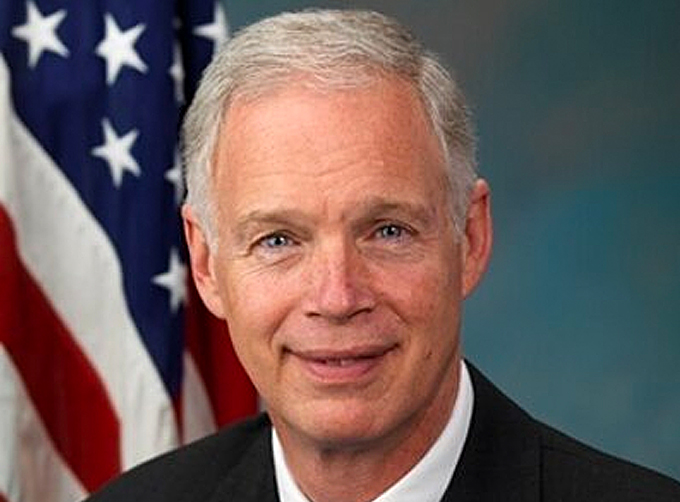
“This year, wildfires are spreading across California, the hurricane season is underway, and we already lost two lives this June from heavy rains and flooding in my home state of Wisconsin.”
“As Chairman of the Senate Homeland Security and Governmental Affairs Committee, I will continue to advocate for the Disaster Recovery Reform Act of 2018.”
“This legislation aims to address lessons learned from last year’s disasters by incentivizing mitigation projects and enabling better local response and recovery.”
“Being individually prepared before disasters strike is a responsibility every American needs to shoulder.”
“I am honored to serve as Congressional Co-Chair for the 2018 National Preparedness Month.”
(Gary Boggs, a retired U.S. Army Sergeant, purchased flood insurance from the NFIP to protect his biggest asset, his Jacksonville rental property. After Hurricane Irma, flood insurance made rebuilding possible. Courtesy of FEMA and YouTube. Posted on Mar 20, 2018.)
“For communities in Missouri and across the country, having a plan in place is key to making sure families stay safe in the unfortunate event of a natural disaster,” said Claire McCaskill, the top-ranking Democrat on the Senate Homeland Security and Governmental Affairs Committee.

“I’m proud to join FEMA and Senate colleagues on both sides of the aisle during this National Preparedness Month to spread the word about how emergency preparedness can save lives.”
“Just like harvest season rolls around every year, you can count on emergencies being a constant in our lives,” added Senator Jon Tester, Ranking Member, Committee on Appropriations, Subcommittee on Homeland Security
“And while we can’t prevent every disaster, it just makes sense to prepare for them now.”
(Hurricanes don’t plan ahead, but you can. Create an emergency communications plan for you and your family today. Courtesy of FEMA and YouTube. Posted on Aug 31, 2018.)
“Over the last year, Michiganders have experienced extreme flooding and severe weather that damaged roads, businesses and homes,” said Senator Gary C. Peters, Ranking Member, Committee on Homeland Security and Governmental Affairs, Subcommittee on Federal Spending Oversight and Emergency Management.
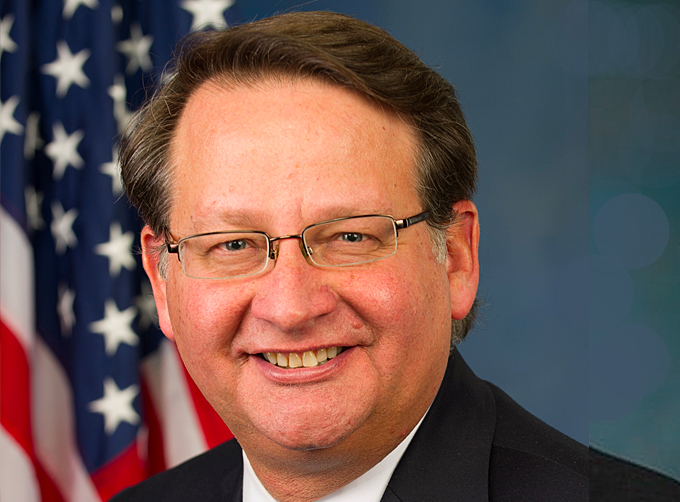
“In response to these life-altering events, I’ve seen how prepared communities and increased investment in risk management resources lead to faster, stronger recovery efforts.”
“National Preparedness Month serves as an important reminder for everyone in our communities to take action now to prepare for possible emergencies.”
“Last year, our country experienced devastating hurricanes, flooding, wildfires, and two terrorist attacks,” explains Representative Michael McCaul, Chairman, Committee on Homeland Security.

“All of these events underscore the importance of preparedness.”
“This National Preparedness Month, I urge all Americans to take steps to get better prepared: learn about the threats you face, make an emergency kit, have a plan, and follow emergency management officials on social media.”
“A prepared community is a resilient community.”
(Tornadoes don’t plan ahead, but you can. Create an emergency communications plan for you and your family today. Courtesy of FEMA and YouTube. Posted on Aug 30, 2018.)
“September marks National Preparedness Month, a reminder that we must all take action to prepare for natural disasters, like earthquakes, wildfires, and hurricanes that can wreak havoc on our communities,” added Representative Peter A. DeFazio, Ranking Member, Committee on Transportation and Infrastructure.
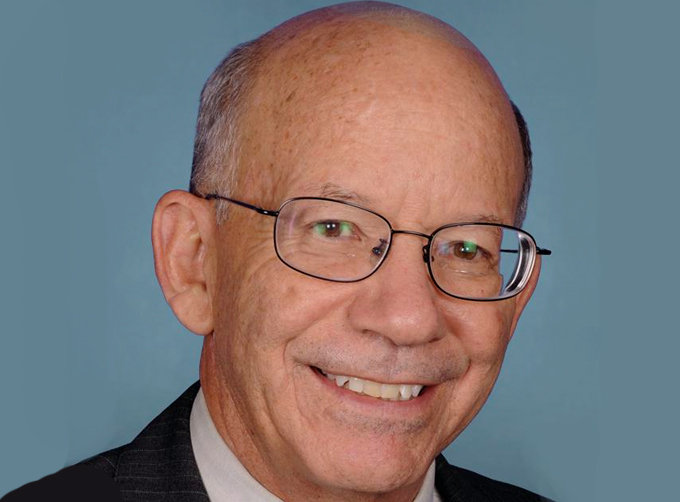
“After the devastating 2017 hurricane and wildfire seasons, we unfortunately saw that no community is immune to natural disaster,” said Ranking Member Peter DeFazio (D-OR)
“It is critical that we come together to develop a strategy to better protect and prepare our communities for emergencies.”
“During this month, I encourage everyone to take the time to learn what you can do now to help protect yourself and your loved ones in case a natural disaster strikes.”
“In 2017, for the first time on record, three Category 4 hurricanes made landfall in the United States and as we enter the peak of the 2018 hurricane season, American families must be prepared for the economic, social, and physical costs of increasingly catastrophic weather,” commented Representative Maxine Waters, Ranking Member, Committee on Financial Services.

“As Ranking Member of the House Committee on Financial Services, I am committed to ensuring that families and businesses are well-equipped for the devastating impact of natural disasters as I continue to push for a long-term reauthorization of the National Flood Insurance Program (NFIP).”
“NFIP was created to provide accessible and affordable flood insurance for millions of families and I’m pleased to participate as a 2018 National Preparedness Month Congressional Co-Chair to raise awareness of the importance of flood insurance and other forms of emergency and disaster preparedness.”
(Jeff Baugh had just brought his newborn daughter home when Hurricane Harvey hit. After the storm, flood insurance from the NFIP allowed his family to get back to their home and back to their lives more quickly. Courtesy of FEMA and YouTube. Posted on Mar 20, 2018.)
“Research shows that across the country fire seasons are becoming longer and strong storms more frequent,” explains Representative Eddie Bernice Johnson, Ranking Member, Committee on Science, Space, and Technology.
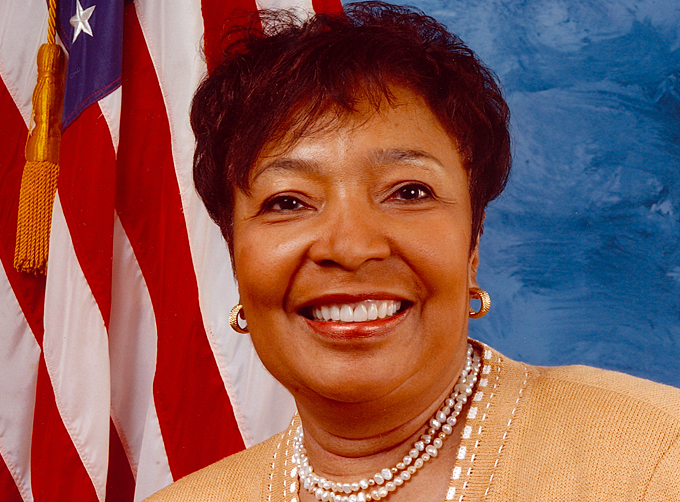
“Last year, thousands of Americans lost their lives, homes, and livelihoods due to extreme weather events and natural disasters, including some of my fellow Texans.”
“I am happy to join FEMA during National Preparedness Month in encouraging individuals and communities around the country to take time to create a plan now that can help keep themselves, their families, and their neighbors safe in the event of an emergency.”
“It’s important to remember that simple preparations can save lives.”
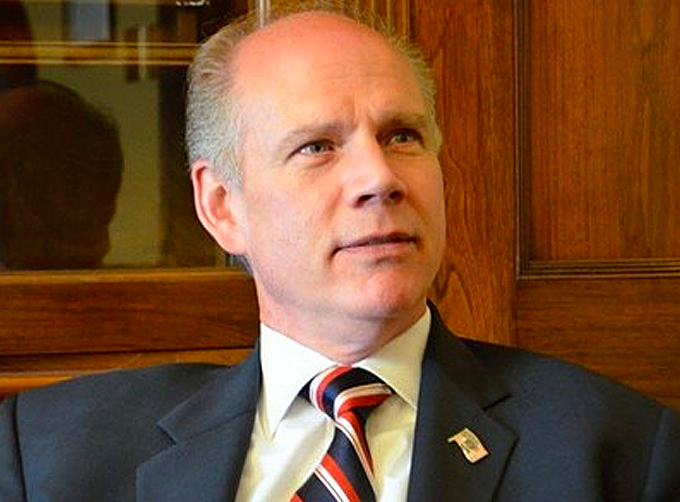
Representative Dan Donovan, Chairman, Committee on Homeland Security, Subcommittee on Emergency Preparedness, Response and Communications added,“Our nation knows all too well the widespread devastation natural disasters and terrorist attacks bring.”
“While we can’t always control when a disaster will strike, we can take steps to ensure our families are better prepared for emergency situations.”
“September is National Preparedness month, and it’s the perfect time to get ready for the unexpected.”
“Become informed, draft a plan, create a kit, and talk to your loved ones. Taking these small steps will make our communities stronger, safer, and more resilient.
“Let’s work together and prepare now.”
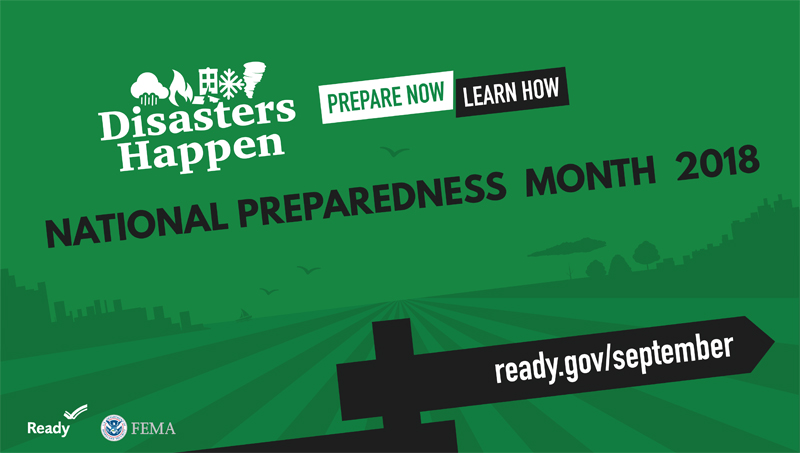
Recommended Actions You Can Take to Get Involved
Week 1: September 1-8– Make and Practice Your Plan
-
Make an Emergency Plan
-
Sign up for alerts and warnings in your area
-
Learn your evacuation zone and have an evacuation plan
-
Make and practice Your Plan graphics
Take a Closer Look
-
Disasters don’t plan ahead. You can.
- Make an emergency plan today & practice it: www.ready.gov/plan #PrepareNow #NatlPrep
- Preparing your family for an emergency is as simple as a conversation over dinner.
- Get started with tips from www.ready.gov #PrepareNow #NatlPrep
- Does your family have a fire escape plan? Make one today & practice two ways out of every room. #PrepareNow #NatlPrep
- Practice your fire escape plan by having a home fire drill at least twice a year with everyone in the home. #PrepareNow #NatlPrep
- Download a group texting app so your entire crew can keep in touch before, during & after an emergency. #NatlPrep #PrepareNow
- Practice evacuating in the car with your animals, so they’re more comfortable if you need to evacuate in an emergency. #NatlPrep #PrepareNow
- Disasters don’t plan ahead, but you can #PrepareNow. Get the @fema app with weather alerts for up to 5 locations: www.fema.gov/mobile-app #NatlPrep
- Sign up for local emergency alerts in your area by searching online. #NatlPrep
- Contact your water and power companies to get on a “priority reconnection service” list of power-dependent customers if you rely on electrical medical equipment. #PrepareNow
- #PrepareNow. Find out if laws in your state permit pharmacists to dispense a 30-day refill of medications in an emergency.
(Are you prepared for a potential emergency? Check out this step-by-step guide to planning for any situation then check out Ready.Gov for even more information. Courtesy of the Department of Defense and YouTube. Posted on Sep 5, 2018.)
Week 2: September 9-15-Learn Life Saving Skills
-
Know basic home maintenance to protect your family and home.
- Learn how to mitigate your home against flood damage, or protect against the impacts of earthquakes.
- Learn how to turn off utilities like natural gas in your home.
- Put smoke alarms on every level of your home, test them monthly, and replace them when they are 10 years old.
- Know the ways to keep your home safe from cooking, heating & electrical fires.
- On National Day of Action, Saturday, September, 15, hold a preparedness event.
- Some examples of events might be hosting a CPR class or Community Emergency Response Team (CERT) training at your business, school, or house of worship.
- Volunteer with a local disaster response or recovery agency.
Take a Closer Look
-
Keep your family safe.
- Install natural gas detectors throughout your house.#PrepareNow #NatlPrep
- Commit to learning and sharing life-saving emergency skills with the
#UntilHelpArrives training http://go.usa.gov/x5Xcm #PrepareNow - What’s deadly, colorless, and odorless? Carbon monoxide.
- Protect your family by installing a carbon monoxide detector #PrepareNow #NatlPrep
- Do you know how to turn off the gas in your home?
- Learn how to in case you ever have a gas emergency in your home. #NatlPrep
- Be prepared for a power outage by having enough food, water, & meds to last for at least 72 hours: www.ready.gov/kit #PrepareNow
- Whether you need batteries for your remote or flashlight, always make sure you have spare batteries handy in an emergency: www.ready.gov/kit #PrepareNow #NatlPrep
- Never use candles for emergency lighting.
- Use flashlights and stock up on extra batteries. #PrepareNow #NatlPrep
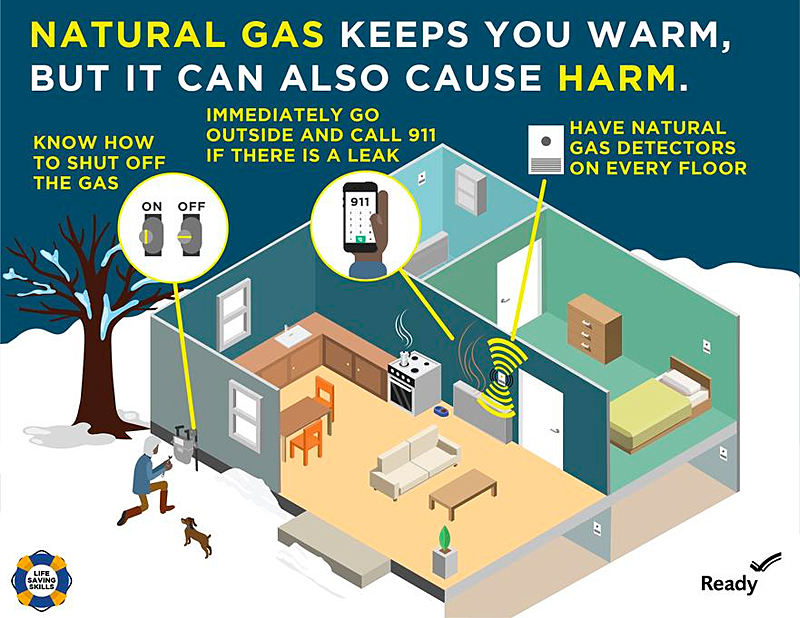
-
Do you have emergency supplies?
- Get ahead of the next storm or wildfire by making sure you’re ready in case you are asked to leave your home: www.ready.gov/kit #PrepareNow
- Replace all home smoke alarms when they are 10 years old. #PrepareNow #NatlPrep
- Put smoke alarms on every level of your home and test them monthly. #PrepareNow #NatlPrep
- Keep anything that can catch fire away from your stovetop. #PrepareNow #NatlPrep
- Keep anything that can burn at least 3 feet from your furnace, water heater, and other heat-generating equipment. #PrepareNow #NatlPrep
- Have chimneys and vents cleaned and inspected by a qualified professional at least once a year to prevent home fires. #PrepareNow #NatlPrep
- Practice how to “Drop down onto your hands and knees. Cover your head and neck with your arms. Hold on to any sturdy covering until the shaking stops.”
- More info at www.ready.gov/earthquake#PrepareNow
- Do you know what to do when an emergency happens?
- Learn actions to save a life
#UntilHelpArrives: https://community.fema.gov/until-help-arrives #PrepareNow
- Learn actions to save a life
- Giving CPR to a person struck by lightning can save their life. Learn how to perform Hands-Only and how to use an AED to prepare for a health emergency. #PrepareNow
(Plan and practice home fire drills at least twice a year. Make sure you know two ways out of each room. Courtesy of FEMA and YouTube. Posted on Oct 5, 2012.)
Week 3: Sept 16-22-Check Your Coverage
-
Insurance is the first line of defense; check your insurance coverage and review the Document and Insure Property guide.
- Flood Insurance allows communities and families to recover more quickly and more fully.
- Visit Floodsmart.gov to learn more about flood insurance and how to protect your home or business.
- With flood insurance, John and Michelle Tipton are rebuilding their home safer and stronger after Hurricane Matthew. Flood insurance is worth the investment. https://www.youtube.com/watch?v=rmE4GQkfd0w #FloodSmart #NatlPrep
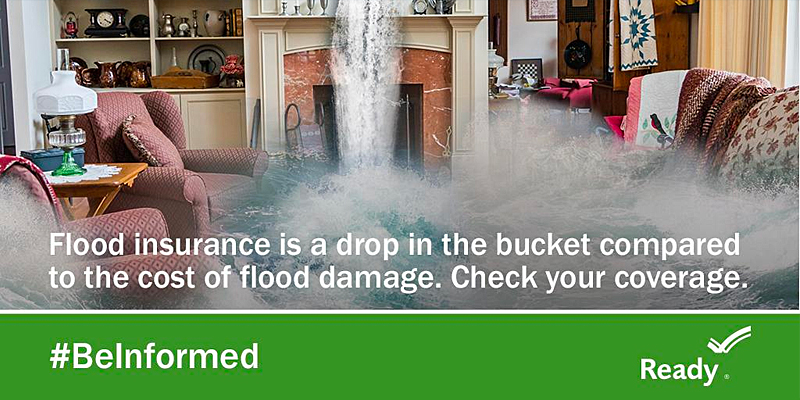
Take a Closer Look
-
Flooding can be an emotionally and financially devastating event.
- Just one inch of water can cause $25,000 in damage to your home. #PrepareNow #Floodsmart
- Approximately 80% of households impacted by Hurricane Harvey last year did not have flood insurance.
- Don’t become a statistic. Learn more about your flood risk: www.floodsmart.gov #NatlPrep #FloodSmart
- Most homeowners’ and renters’ insurance does not cover flood damage.
- Learn more about flood insurance at www.floodsmart.gov #PrepareNow #FloodSmart
- #PrepareNow. Snap photos of important documents and personal belongings to help you quickly file a claim after a flood:
- https://youtu.be/i3MfRpND5gk #NatlPrep
- Hurricanes bring heavy rains that may cause flooding.
- Think about buying flood insurance before the storm. www.floodsmart.gov #NatlPrep #FloodSmart
- Floods are the most common and costly natural disaster in the U.S.
- Are you protected? Check your insurance policy today #NatlPrep #FloodSmart
- 30 Days: The number of days it takes for most flood insurance policies to go into effect.
- Don’t wait until it’s too late! www.floodsmart.gov #PrepareNow #FloodSmart
- Anywhere it rains, it can flood.
- Learn more about how flood insurance can help protect the life you’ve built. #NatlPrep #FloodSmart
- Find out if you live in a flood prone area and how flood insurance can lessen the cost to your family by visiting: www.floodsmart.gov. #NatlPrep #FloodSmart
- At least 25% of small businesses never reopen following a disaster.
- Purchase flood insurance to protect your business. #NatlPrep #FloodSmart
(Rupi Prasad purchased flood insurance for peace of mind during her retirement years. With help from the NFIP, she’s rebuilding after Hurricane Harvey. Courtesy of FEMA and youTube. Posted on Mar 20, 2018.)
Week 4: Sept 23-30-Save For an Emergency
-
Plan financially for the possibility of disaster.
- Complete an Emergency Financial First Aid Kit (EFFAK)
- Maintain emergency savings for use in case of an emergency
-
Financial Preparedness Graphics
Take a Closer Look
-
What important documents should you have for an emergency?
- The Emergency Financial First Aid Kit explains them all: https://go.usa.gov/xNhp6 #PrepareNow
- How will you pay your bills if a disaster strikes?
- Disasters don’t plan ahead, #PrepareNow: www.ready.gov/financial-preparedness #NatlPrep
- Over 40 percent of all Americans don’t have $400 in savings according to the Federal Reserve. What will you do if there is a disaster?
- Learn how you become more prepared:www.ready.gov/financial-preparedness #PrepareNow
- Keep some cash on hand in case of emergencies. #NatlPrep
- You will have expenses like lodging, food, and gas, after a disaster. Are you prepared?
- #PrepareNow www.ready.gov/financial-preparedness #NatlPrep
-
Are you prepared for a flood?
- Floods are the nation’s most common and costly natural disaster, causing billions of dollars in damage each year.
- #PrepareNow. Get tips: www.floodsmart.gov #FloodSmart
- The Emergency Financial First Aid Kit is a tool to help you and your family collect and secure the documents you would need if there was a disaster. www.ready.gov/financial-preparedness#PrepareNow #NatlPrep
- Set aside a small amount from each paycheck to go into your savings account.
- Find more tips to help you manage your money to be prepared for the unexpected: https://www.usa.gov/flec #NatlPrep
- Only about half of all Americans have an emergency fund. This gives them the money needed to help with increased expenses after a disaster.
- Get tips about creating a fund: https://www.usa.gov/flec#PrepareNow
- Do you know the help your community provides if there is a disaster?
- Search online today. #NatlPrep #PrepareNow
- Make digital copies of important documents and save them on the cloud or a secure cell phone app in case disaster strikes. #NatlPrep
- Flooding can be an emotionally and financially devastating event.
- Just one inch of water can cause $25,000 in damage to your home.
- To learn more visit www.FloodSmart.gov #FloodSmart #PrepareNow
(Let the FEMA App help you with up-to-date alerts during emergencies, storms, and other natural disasters. Courtesy of FEMA and YouTube. Posted on Feb 23, 2017.)
















